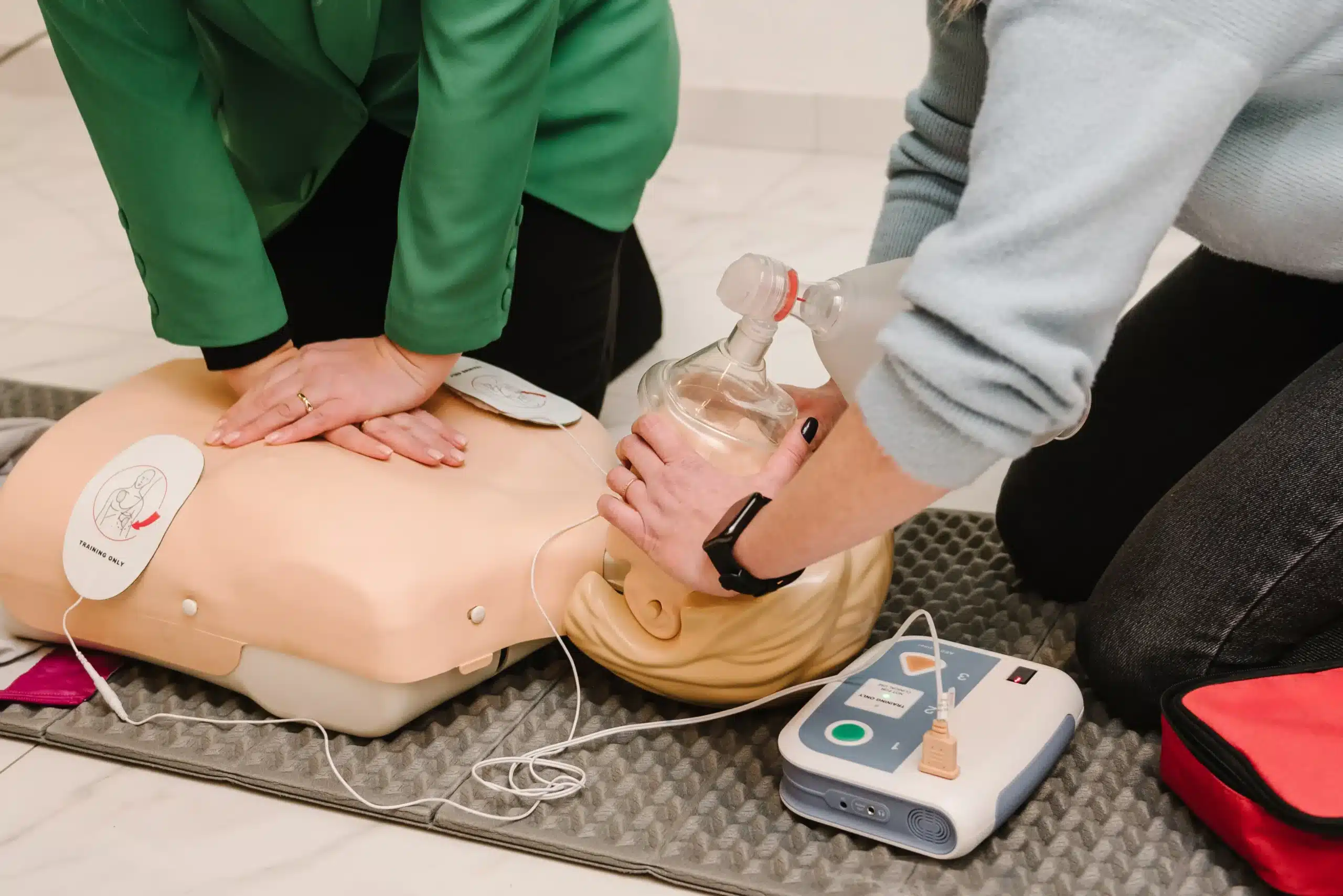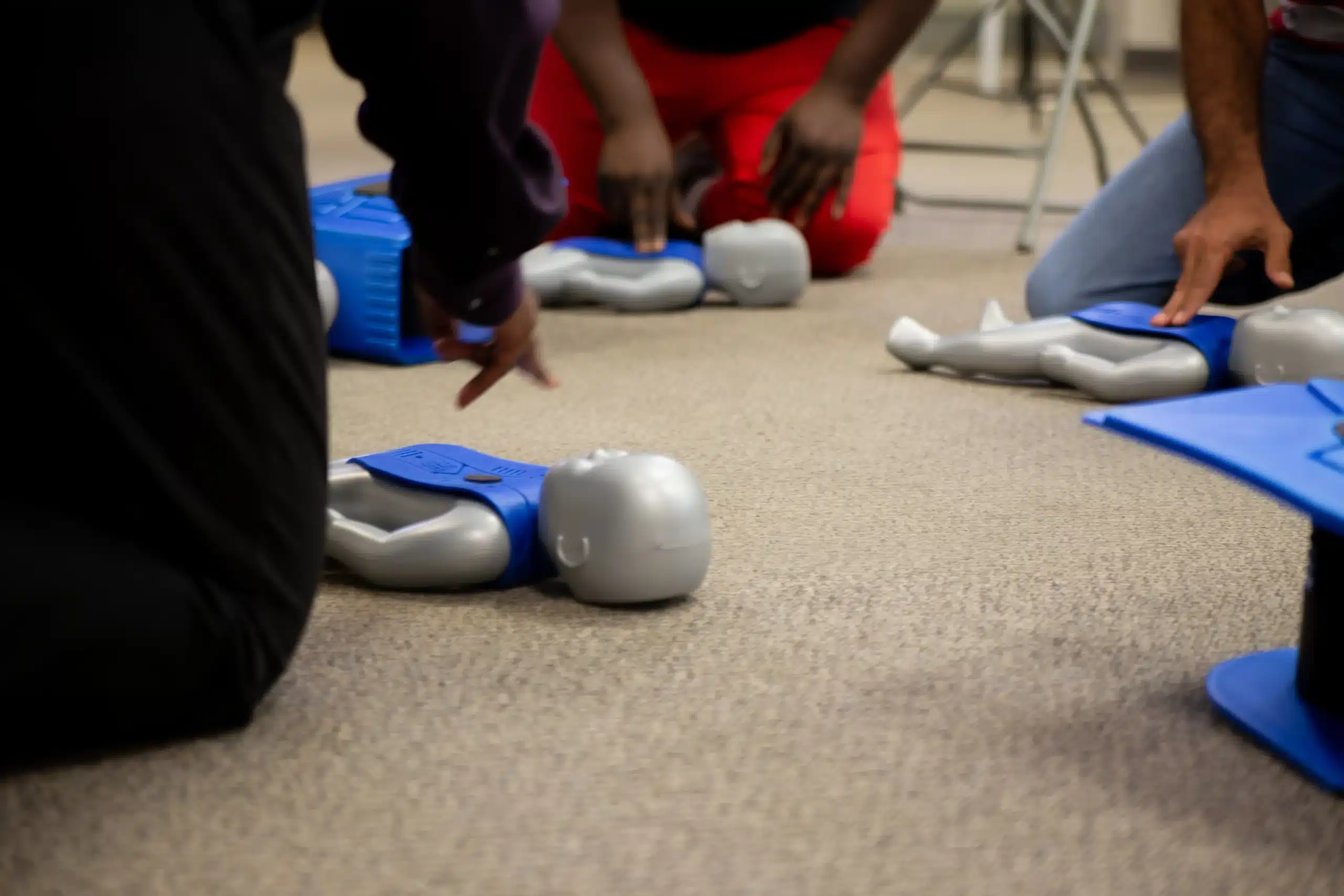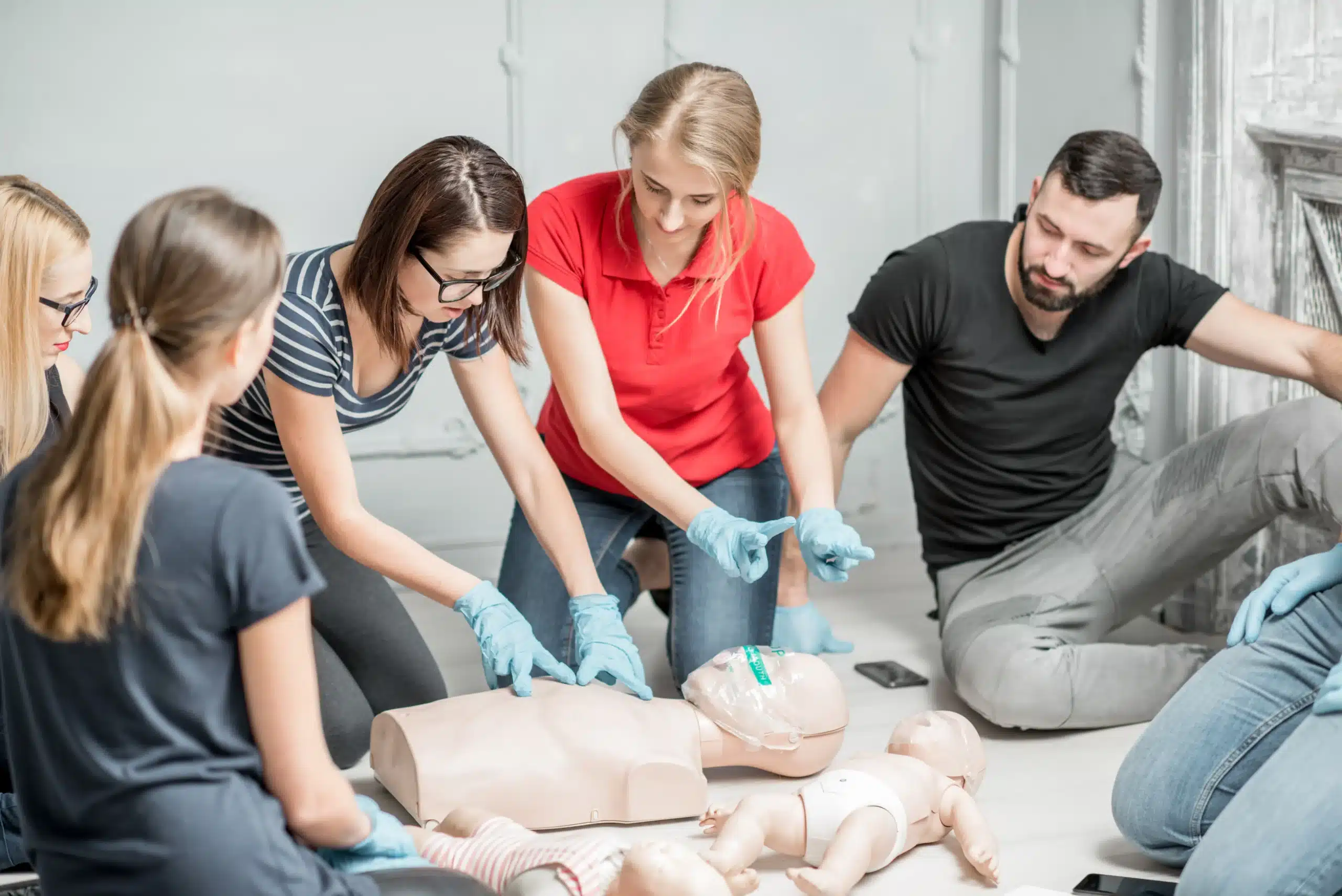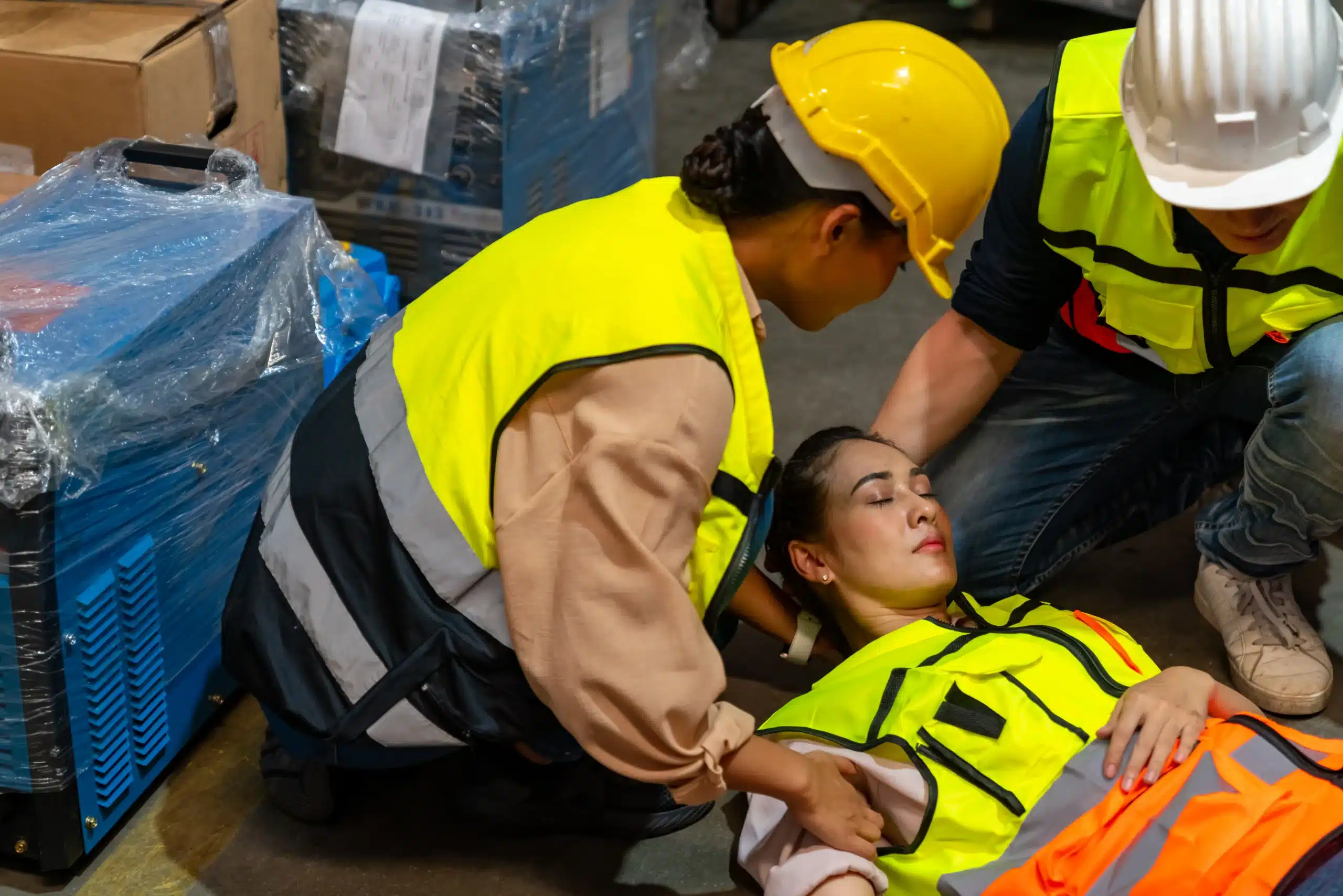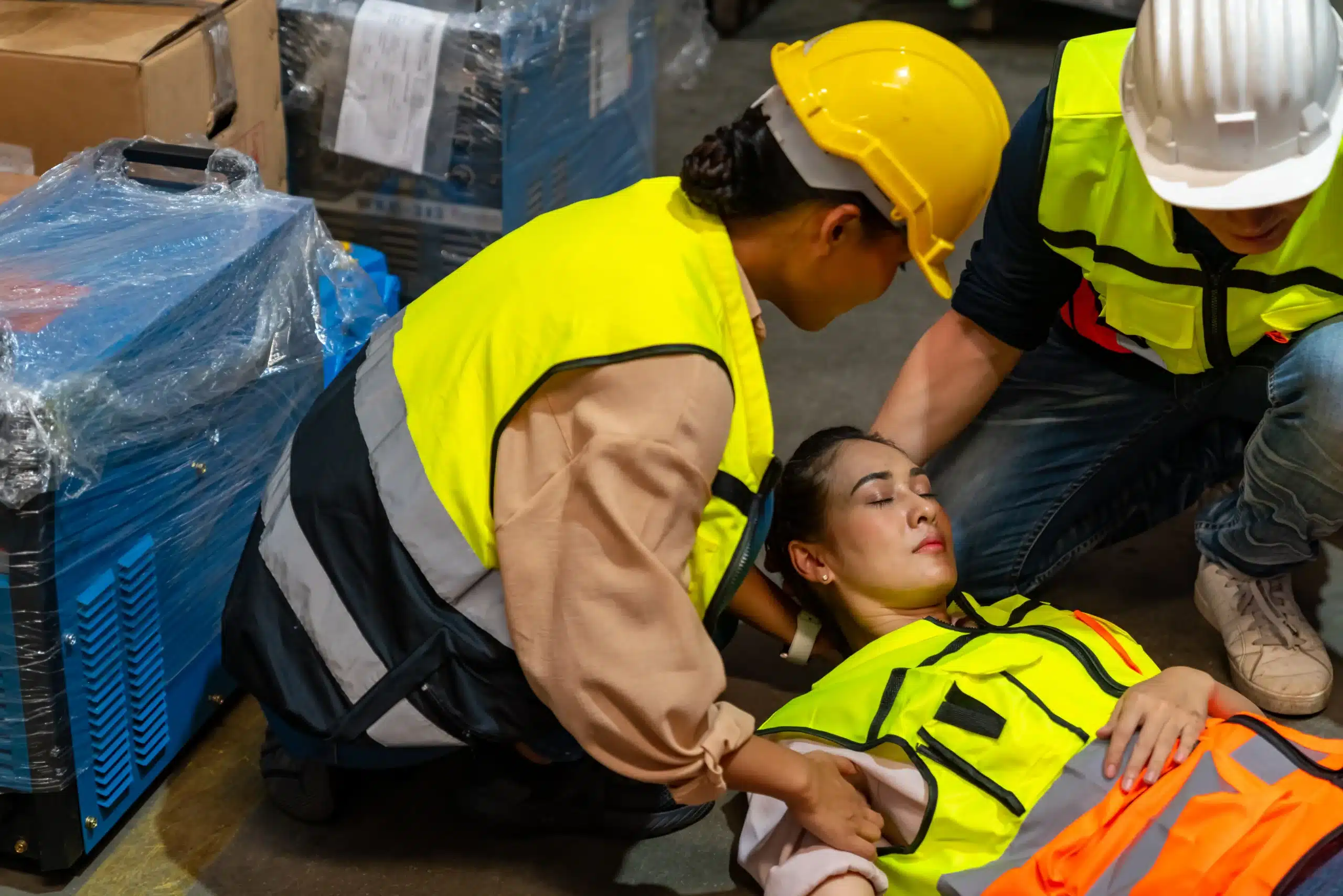As a healthcare provider, parent, or caregiver, you know that children require specialized care, especially during emergencies. Their smaller bodies and developing systems react differently than adults do to illness and injury. That’s why Pediatric Advanced Life Support (PALS) training is so crucial. It provides the advanced skills and knowledge needed to respond effectively to life-threatening situations in infants and children. If you’re looking for pediatric advanced life support in Berkeley, this comprehensive guide will help you understand the importance of PALS certification, what the training entails, and how it can empower you to provide the best possible care. We’ll explore the key components of PALS, the benefits of becoming certified, and the resources available to support your training journey.
Key Takeaways
- PALS equips you with life-saving pediatric skills: It goes beyond basic CPR, providing specialized training for a range of emergencies and emphasizing teamwork in critical situations. Hands-on simulations and interactive learning are key components of effective PALS courses.
- Finding the right PALS course is crucial: Consider factors like cost, scheduling, and available learning formats. Providers like Berkeley CPR Classes offer a low-price guarantee, group discounts, and flexible scheduling to fit your needs.
- Maintaining your PALS certification is an ongoing process: Stay sharp and ready to respond by regularly reviewing key concepts and taking refresher courses. This ensures you’re always prepared to provide the highest level of care in pediatric emergencies.
What is Pediatric Advanced Life Support (PALS)?
Pediatric Advanced Life Support (PALS) is an advanced form of care for children facing life-threatening emergencies. It goes beyond basic CPR, equipping healthcare providers with specialized knowledge and skills to manage respiratory and cardiac arrest in infants and children. Think of it as the next level of training after basic life support (BLS), providing a deeper understanding of pediatric physiology and the specific interventions needed in critical situations.
Key PALS Training Components
PALS certification courses cover essential topics, including systematic assessment of a child’s condition, effective airway management techniques, and appropriate medication dosages. The training emphasizes a team-based approach, teaching providers how to work together seamlessly during emergencies. You’ll also learn how to recognize and respond to a variety of pediatric emergencies, from shock and respiratory distress to cardiac arrhythmias.
Why Healthcare Providers Need PALS
For healthcare professionals working with children, PALS certification is often a job requirement. It demonstrates a commitment to providing the highest standard of care and ensures you’re prepared to handle pediatric emergencies effectively. The hands-on simulation training included in PALS courses is invaluable, allowing providers to practice their skills in a safe environment and build the confidence needed to act decisively in real-life situations. This practical experience is crucial for translating classroom knowledge into effective action.
Who Should Get PALS Certified?
Anyone regularly involved in the care of infants and children should consider becoming PALS certified. This includes pediatricians, nurses, paramedics, emergency medical technicians, respiratory therapists, and other healthcare providers working with children. Even if not strictly required for your role, PALS certification can enhance your skills and improve patient outcomes. It’s a valuable asset for anyone committed to providing optimal care in pediatric emergencies.
Common PALS Misconceptions
One common misconception is that PALS certification is only necessary for hospital staff. In reality, pediatric emergencies can happen anywhere, making PALS relevant for healthcare providers in various settings, including clinics, schools, and even summer camps. Another misconception is that PALS is the same as basic life support (BLS). While BLS provides a foundation in CPR, PALS delves much deeper into the complexities of pediatric care, offering specialized training not covered in basic CPR courses. It’s a distinct and essential certification for anyone dedicated to providing the best possible care for children.
Top PALS Providers in Berkeley
Finding the right Pediatric Advanced Life Support (PALS) course is crucial for healthcare providers working with infants and children. Here are some top PALS providers in Berkeley:
Berkeley CPR Classes
Berkeley CPR Classes offers a range of American Heart Association certification courses, including PALS. Their focus on customer service and a low-price guarantee makes them a popular choice. Daily classes accommodate busy schedules and various learning preferences. Check out their group discounts if you’re certifying with colleagues. They also offer related courses like RQI.
American Red Cross
The American Red Cross provides PALS certification using a blended learning format, combining online coursework with in-person skills sessions. This approach offers flexibility while ensuring participants receive hands-on training. The Red Cross PALS course equips healthcare providers with the skills to manage pediatric emergencies.
Other Local Providers
Several other local options exist for PALS certification in Berkeley. Safety Training Seminars is one example, offering AHA-certified PALS courses. Researching different providers will give you a better sense of which course structure and pricing best suits your needs. Compare what each provider offers to find the best fit for your learning style and schedule.
PALS Course Features & Formats
PALS courses blend online learning with in-person skills sessions. This flexible format helps you learn essential pediatric life support skills in a way that fits your schedule. Let’s explore the key features of a typical PALS course.
Blended Learning
Many PALS courses now offer a blended learning approach, combining online modules with hands-on practice. This format allows you to study the theoretical material at your own pace online, then demonstrate your skills in a practical setting. This flexibility makes PALS certification more accessible for busy professionals and parents. The online portion typically covers core concepts like pediatric assessment, basic life support, PALS treatment algorithms, effective resuscitation techniques, and the importance of team dynamics.
Hands-on Simulation
PALS courses emphasize hands-on learning to build confidence in real-life emergency situations. Through realistic simulations and case studies, you’ll practice essential skills like airway management, intravenous access, and medication administration in a safe and controlled environment. These simulations often involve interactive scenarios that mimic actual pediatric emergencies, allowing you to apply your knowledge and refine your responses under pressure.
Interactive Lectures & Case Studies
While hands-on training is crucial, PALS courses also incorporate interactive lectures and case studies to reinforce key concepts. These sessions provide a deeper understanding of pediatric physiology, pharmacology, and treatment protocols. Interactive discussions and case study analyses help you develop critical thinking skills and prepare you to make informed decisions in diverse emergency situations.
Course Length & Scheduling
PALS courses are designed to be comprehensive yet manageable. The online learning component usually takes between three and four hours to complete. The in-person skills session and testing typically require an additional half-day. This blended approach allows you to balance your coursework with other commitments. Total course costs generally average around $290 for initial certification and renewal.
What Makes Berkeley CPR Classes Unique?
Berkeley CPR Classes stands out with its commitment to affordability and accessibility. We offer a low-price guarantee and group discounts, making PALS training more accessible for families, businesses, and community organizations in Alameda, Oakland, and Berkeley. Our courses are available daily, providing scheduling flexibility to fit your needs. We also prioritize customer service, ensuring a supportive and positive learning experience for every student.
PALS Certification: Cost & Value
Getting PALS certified is an investment in your skills and career. But what does it actually cost, and what kind of value do you get in return? Let’s break down the pricing and highlight what makes certain courses stand out.
Average Berkeley Course Prices
In Berkeley, PALS courses typically cost around $290 for initial certification and renewal. Prices can fluctuate a bit depending on the provider and included materials. It’s always smart to compare what different providers offer to find the best fit for your budget. San Pablo CPR Classes offers a good starting point for comparing current rates.
Discounts & Promotions
Want to save some money? Many providers, including Berkeley CPR Classes, offer discounts for group registrations. This works well if you’re signing up with colleagues or friends. Also, look out for other promotions like seasonal deals or early registration discounts.
Berkeley CPR Classes’ Low-Price Guarantee
Berkeley CPR Classes offers a low-price guarantee, ensuring a competitive rate for your PALS certification. With convenient daily classes in Berkeley and nearby cities, they make it easier to fit the training into your schedule. Check out their website for their course schedule and details.
Comparing Value-Added Features
Beyond the certification itself, think about the extras that can improve your learning. Berkeley CPR Classes focuses on hands-on training and practical skills, crucial for handling real-life emergencies. PALS certification isn’t just a checkbox; it’s about gaining skills to potentially save a child’s life. The real value lies in the quality of instruction and how well it prepares you. San Pablo CPR Classes also underscores the importance of PALS certification, especially considering how children’s physiology differs from adults’ in emergencies.
PALS Prerequisites & Certification
This section covers the requirements for PALS certification, enrollment details, and how to maintain your certification. Understanding these aspects will help you prepare for your PALS training.
Required Skills & Knowledge
PALS certification builds upon fundamental life support skills. It’s designed for healthcare providers who already have a strong foundation in basic life support. While there aren’t strict prerequisites like prior certifications, a working knowledge of CPR is essential. This ensures you can grasp the advanced concepts and techniques taught in a PALS course. PALS focuses on the specifics of pediatric emergencies, requiring a deeper understanding of childhood illnesses and physiological differences compared to adults. Familiarity with medical terminology and basic life support procedures will significantly improve your learning experience.
Enrolling in a PALS Course
Berkeley CPR Classes offers American Heart Association PALS courses that follow a comprehensive curriculum covering pediatric emergency care topics. Enrolling in a PALS course is easy through our website. We offer the convenient HeartCode PALS blended learning format, combining online learning with a required hands-on skills session. This allows you to study the theoretical material at your own pace before demonstrating your skills in person. This blended learning approach ensures comprehensive training and practical experience. Check our website for upcoming course dates and available formats.
Certification Validity & Renewal
Your PALS certification is valid for two years. To maintain your credentials and stay current with advancements in pediatric emergency care, renewal is required. This ensures you’re always equipped with the most current knowledge and best practices. After completing your PALS course, you’ll receive an official American Heart Association certification card, valid for two years. We recommend marking your calendar and checking our website for recertification courses as your expiration date approaches. Staying current with your PALS certification demonstrates your commitment to providing high-quality care and ensures you’re prepared to handle any pediatric emergency.
Critical Skills Learned in PALS Training
PALS certification from the American Heart Association goes beyond basic life support. It equips healthcare providers, and others working with children, with the advanced skills needed to respond effectively to life-threatening pediatric emergencies. Let’s break down the critical skills covered in a PALS course:
Recognizing Pediatric Emergencies
One of the most crucial aspects of PALS training is developing the ability to quickly and accurately recognize pediatric emergencies. This involves understanding the subtle and often rapid changes in a child’s condition that may signal a deteriorating situation. You’ll learn to assess a child’s airway, breathing, and circulation (ABCs) and identify signs of respiratory distress, shock, and cardiac arrest. Early recognition is the first step towards effective intervention and can significantly impact a child’s outcome. For more information, check out these resources on PALS Certification Myths.
Advanced Life Support Techniques
PALS training delves into advanced life support techniques specifically tailored to the physiological differences between children and adults. You’ll gain proficiency in performing high-quality CPR, administering medications appropriate for pediatric patients, managing respiratory emergencies, and using specialized equipment like defibrillators. These skills are essential for stabilizing a child’s condition and providing the best possible chance of survival. Learn more about these advanced techniques.
Team Dynamics & Communication
Effective teamwork and communication are paramount in emergency situations. PALS training emphasizes the importance of clear communication, defined roles, and coordinated efforts within a resuscitation team. Through simulations and case studies, you’ll practice working as part of a team, learning to communicate effectively under pressure and ensure seamless coordination of care. This collaborative approach is vital for minimizing errors and maximizing the effectiveness of interventions. Boston Children’s Hospital offers valuable insights into team dynamics in PALS training.
Practical Healthcare Applications
The skills learned in PALS training have direct, practical applications in various healthcare settings. Whether you’re a nurse, doctor, paramedic, or other healthcare professional, PALS certification enhances your ability to confidently manage pediatric emergencies. This specialized training empowers you to provide the highest level of care to children facing life-threatening situations. Explore how PALS certification benefits healthcare providers.
Prepare for PALS Certification Success
So, you’re ready to pursue your PALS certification—fantastic! Preparing effectively is key to confidently tackling the course and exam. Here’s what you need to know to set yourself up for success:
Recommended Study Materials
Start strong by familiarizing yourself with the recommended PALS study materials. The HeartCode PALS course offered by Berkeley CPR Classes combines online learning with a hands-on skills session. This blended learning approach lets you absorb the material at your own pace before demonstrating your skills in person. This AHA-compliant PALS course covers a range of topics relevant to pediatric emergency care, ensuring you’re well-prepared for certification.
Tips for Mastering PALS Skills
PALS isn’t just about passing an exam; it’s about mastering skills that can save young lives. Focus on truly understanding the protocols, especially those related to airway management. Regular review and consistent practice are essential for any pediatric healthcare provider. Hands-on practice builds muscle memory and confidence, ensuring you can effectively apply these skills under pressure. Consider reviewing resources like Common Mistakes in PALS to identify areas for improvement.
Course & Exam Expectations
Knowing what to expect during the course and exam can ease pre-test jitters. The PALS update course is designed for those already certified and looking to renew. Check with your provider for specific course schedules, but many renewal courses offer a condensed format, like the one-day review offered by some institutions. Expect a combination of lectures, demonstrations, and hands-on practice scenarios. The exam will assess both your theoretical knowledge and practical skills. If you’re pursuing initial certification, inquire about the course length and format.
Ongoing Practice & Recertification
Your PALS journey doesn’t end with initial certification. PALS certification is valid for two years, so staying current with evolving best practices and guidelines in pediatric emergency care is crucial. Regularly review key concepts and participate in refresher courses or simulations to maintain your proficiency. Resources like this PALS Certification Guide can help you stay informed about recertification requirements and best practices. This ongoing commitment ensures you’re always prepared to provide the highest quality care.
Related Articles
- Online PALS Classes in Berkeley: Your Guide – Berkeley CPR Classes
- HeartCode PALS Berkeley: Your Certification Guide – Berkeley CPR Classes
- AHA PALS Classes in Berkeley, CA – Berkeley CPR Classes
- Advanced Cardiac Life Support (ACLS) in Berkeley – Berkeley CPR Classes
- BLS Courses in Berkeley: The Ultimate Guide – Berkeley CPR Classes
Frequently Asked Questions
Is PALS certification only for doctors and nurses? While PALS is crucial for doctors and nurses, it’s also highly beneficial for anyone regularly involved in the care of infants and children, including paramedics, EMTs, respiratory therapists, and other healthcare professionals. Even if it’s not a job requirement, PALS certification enhances your skills and preparedness for pediatric emergencies.
How is PALS different from basic life support (BLS)? BLS provides a foundational understanding of CPR for all ages. PALS builds upon this foundation, focusing specifically on the unique needs of infants and children during life-threatening emergencies. It covers advanced techniques like pediatric airway management, medication administration, and team-based resuscitation strategies not included in BLS.
What does a PALS course typically involve? Most PALS courses now use a blended learning format, combining online modules with in-person skills sessions. This allows you to study the theoretical material at your own pace online, then practice your skills hands-on in a simulated environment. The in-person portion includes realistic scenarios and case studies to reinforce learning and build confidence.
How much does PALS certification cost, and how long is it valid? PALS courses generally cost around $290, though prices can vary slightly by provider. Look for providers like Berkeley CPR Classes that offer a low-price guarantee and group discounts. Certification is valid for two years, after which you’ll need to recertify to stay current with the latest guidelines.
How can I best prepare for a PALS course? A solid foundation in basic life support is helpful, though not strictly required. Familiarize yourself with the course materials beforehand, and focus on understanding the protocols, especially those related to airway management. Hands-on practice is key to mastering the skills and building the confidence needed to respond effectively in real-life emergencies.


